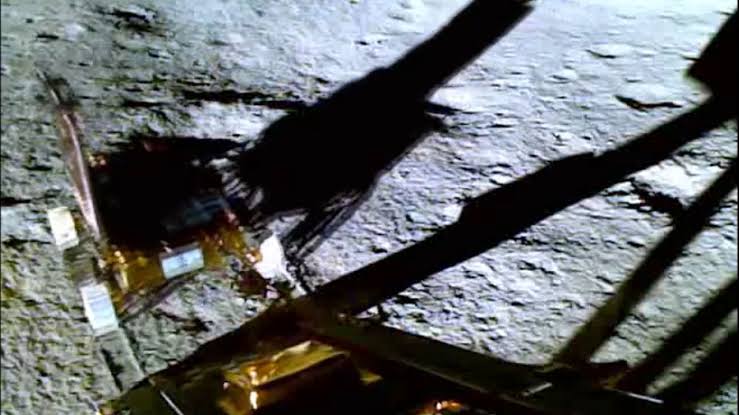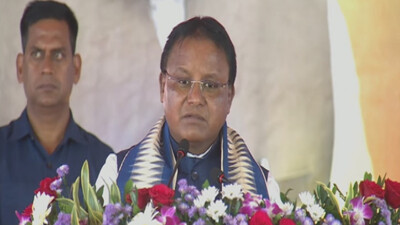New Delhi: After a historic ‘soft landing’ on what is considered a tough task – the south pole of the Moon – Chandrayaan 3 of the Indian Space Research Organisation (ISRO) is now aiming for a ‘bonus’ achievement of being revived after its lander Vikram, and rover Pragyan, worked for a good 14 Earth days.
The whole setup was then sent into sleep mode (on September 2, the rover went to sleep, while the lander did so on September 4), citing the harsh cold conditions that developed on the lunar surface due to the lack of sunlight.
Both the lander and the rover were put into sleep mode earlier this month on September 4 and 2 respectively, ahead of the lunar night setting in on Earth’s only natural satellite.
The major challenge for ‘Pragyan and Vikram’ would be to come back in action after surviving the chilling -200 degree Celsius of temperature. If the onboard instruments survive the low temperature on the Moon, the modules can come back to life and continue their mission to send information from the moon for next fourteen days. If things go as per the plan, the rover will start moving after the commands will be fed into the rover. Later, the same procedure will be repeated on the lander module.
Ahead of the second phase of the Chandrayaan-3 lunar mission, former Indian Space Research Organisation ISRO chief K Sivan expressed optimism and said that the success of the wakeup call regarding the Vikram lander and Pragyan rover is something which “we have to wait and see”.
Speaking to ANI on the second phase of the Chandrayaan-3 lunar mission, the Ex-ISRO chief said, “The success of the wake-up call is something we will have to wait and see. Now the lunar day starts soon, so they will try to wake up soon. All the systems are functioning, it will be alright.”
“It all depends on the system, there are mechanical systems, solar panels, batteries all these do not have a problem. However, the minute electric components like transmitters and receivers, whether they survive the cold temperature that we will have to see. If they survive, then definitely we will be able to wake them up,” Sivan added.


















